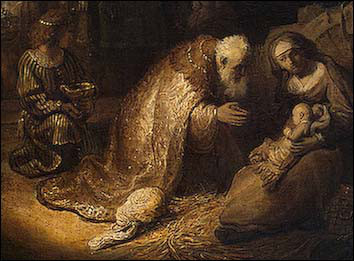International bookends
Kevin Moss | 18:54, 24th December 2014

The Gospel writers narrate two encounters which have an international perspective – right at the beginning and at the end of Jesus' life. They provide quite useful functional bookends for the four accounts which weave eyewitness and historical material into the mix.
The first, occurring at the beginning of Jesus life, involves wise men, traveling from the East, in search of a King (Matthew 2). We don't know how many of them there were, they are variously described as 'magi' or 'kings', and they are following a star which modern astronomers have now identified in terms of its timing, location and significance. The key thing is that they are traveling from the east of Palestine, an area to which the best of Jewish intelligentsia were exiled toward the end of the 6th Century BC. The Babylonish focus on both astronomy and astrological interpretation helps explain the driving force that sends what may well be the cream of Jewish emigres back to their homeland in search of this key fact of significance, the arrival of God's long-promised Messiah.
This provides our first 'International Bookend' for the documented life of Christ. The other occurs at the end of Jesus' life and is recorded for us by John (chapter 12) when we read of a delegation of Greeks arriving, who "wish to see Jesus". This is one of Jesus' last encounters, prior to the events immediately preceding his arrest, trial and crucifixion. In contrast to the wise men, these 'Greeks' represent the best of western culture. Athens was the source of Greco-Roman culture, maths, logic and philosophy, the home of Plato, Socrates and Aristotle – and yet these men come from the epicentre that represents the pinnacle of western civilisation, in order to seek Jesus.
Eastern mysticism. Western rationality and logic. Both cultures send their representatives in search of Christ, recognising that in Him is the solution to all their own shortcomings.
Merry Christmas!
Document Actions

